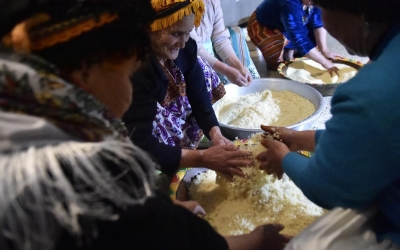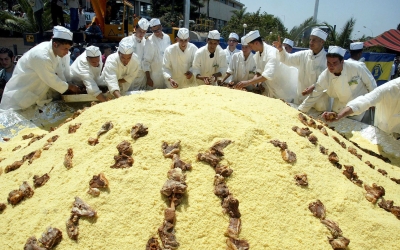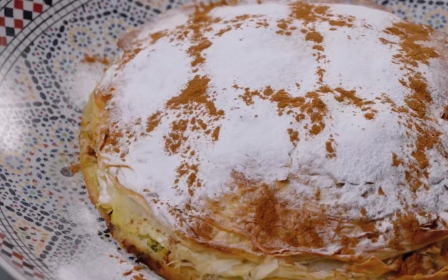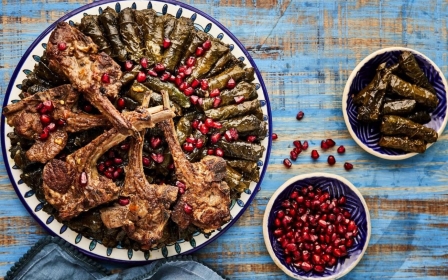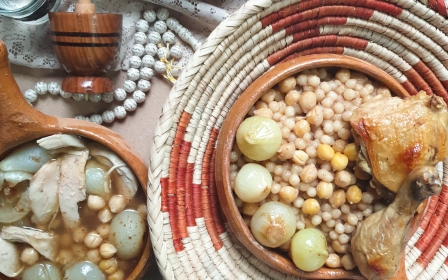Couscous at Unesco: Morocco’s culture ministry sows the grains of discord
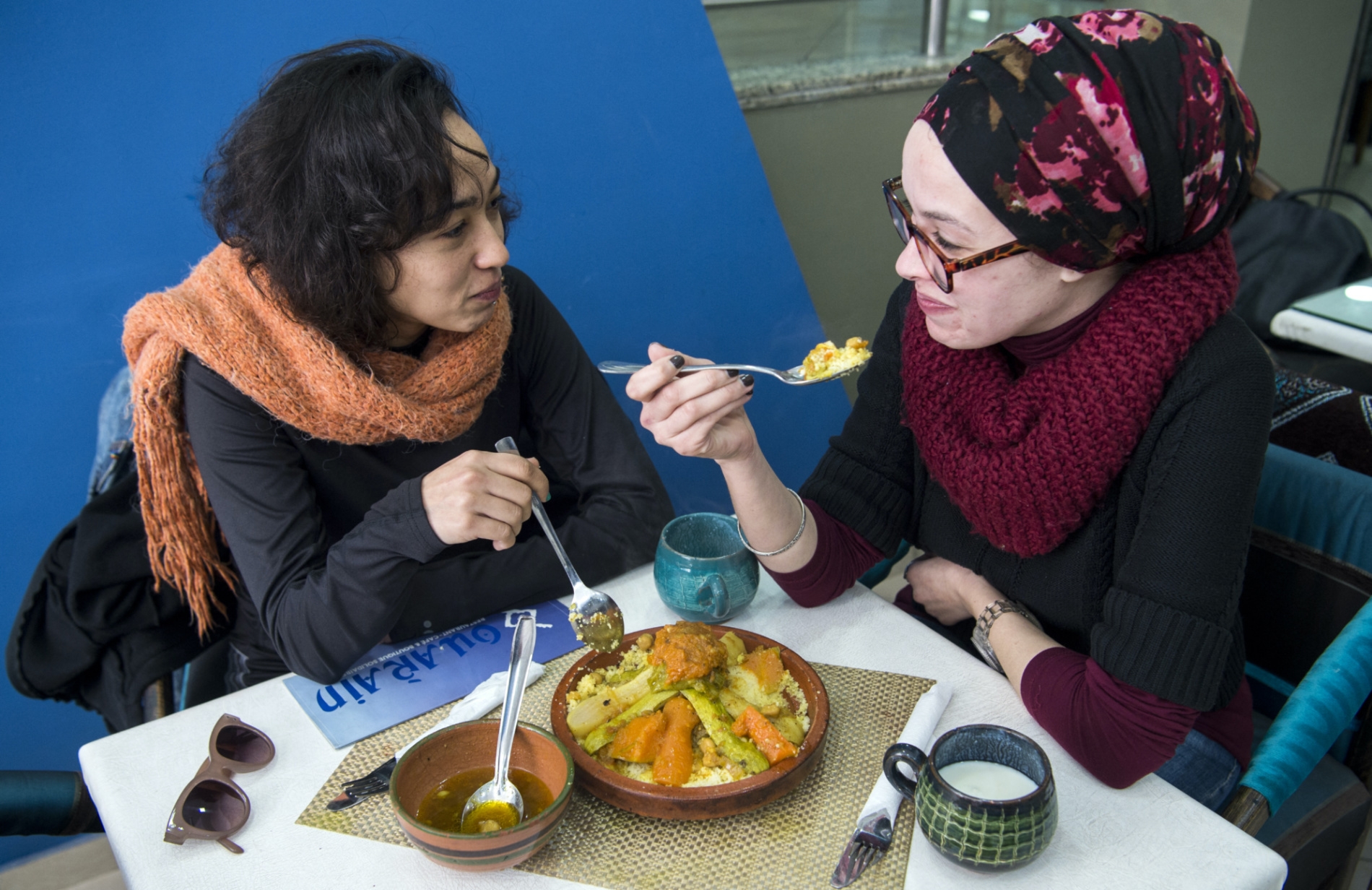
In December 2020, a rare moment of North African unity took place when Morocco, Algeria, Tunisia and Mauritania successfully submitted a joint application to inscribe couscous on Unesco's Intangible Cultural Heritage list.
Widely shared in the international press, the joint application constituted a “very great success”, according to Unesco Director General Audrey Azoulay.
“It’s a strong sign of cultural recognition and it’s also a diplomatic win on an important and symbolic subject for all of the people in the region and beyond,” added Azoulay, the former French culture and communication minister who has led the UN organisation since 2017.
“This consensus shows that cultural patrimony can be at once individual and widely shared, and can transcend borders.”
Morocco’s culture minister, however, does not seem keen on maintaining this culinary collaboration. Recently appointed to the post, Mehdi Bensaid has requested a “label” that will allow Moroccan couscous, in particular, to be inscribed on the Unesco Intangible Cultural Heritage list.
“We have asked the director [of the inventory and documentation division of the Moroccan Ministry of Culture] for a list of all of the components of the Moroccan patrimony to be drawn up,” said the 37-year-old minister.
Unlikely to succeed
The steps drawn up by Bensaid are far from being accepted unanimously, according to multiple sources at the Ministry of Culture.
“It’s populism,” a source involved in the application process told Middle East Eye. “The group tasked with preparing the application for the label is the same one that prepared the joint application with Algeria, Tunisia and Mauritania in 2018 and 2019.”
In effect, the Moroccan file prepared in 2019 by the same division, which is part of the ministerial department "of cultural heritage", praised couscous as "a characteristic element of the intangible cultural heritage of all communities in Morocco and North African countries" and "the unique symbol of welcoming others, commensality and conviviality in all Moroccan and North African families".
"Theories on the origin of couscous and the date of its appearance in North Africa vary, but they generally date back to the dawn of history," wrote the authors of the application for the Intangible Cultural Heritage listing, which was seen by MEE.
“However, the knowledge of grains, their domestication and their use in people’s livelihoods have been noted since the Neolithic period, more than six thousand years ago.
"The first references to couscous in historical sources come from the late 18th century, by Muslim authors who praised its nutritional and medicinal qualities.”
The culture minister's new approach is unlikely to succeed, seeing as the joint North African application filed in 2019 had the backing of associations and "community consent" in each of the four countries.
In Morocco’s case, nine gastronomy and cultural heritage organisations backed the joint application.
"Asserting that couscous is an essential element of the heritage and cultural identity of all territories and that it occupies a major position in the culinary traditions of Moroccans, the Association of Moroccan Chefs welcomes, encourages and fully aligns itself with the submission of a multinational application of couscous for inscription on the Intangible Cultural Heritage list established by Unesco," Mohammed Khir Bennani, the president of the Association of Moroccan Chefs, wrote in a letter dated 19 January 2019.
Similarly, the Moroccan Association of Gastronomy and Culinary Arts expressed its support for the inscription of ''knowledge, know-how and practices related to couscous on the list as part of a joint multinational application, uniting other countries sharing this ancient tradition, including Mauritania, Algeria and Tunisia.”
Algeria's jealousy an 'open secret'
Before deciding to join forces to inscribe couscous on the Unesco list, Algeria, Morocco and in particular Tunisia had laid claim to its ancestral origins.
In 2016, when the Algerian press reported on an initiative by Algeria to apply to the UN, the Moroccan website Le360 - known to be close to the government - penned a vicious take-down of its neighbour, writing indignantly: "Algiers wants to dispute a Moroccan specialty. And just imagine, it’s not just that; it’s the favourite dish of all Moroccans that our neighbour wants to claim: couscous.
"Unesco knows perfectly well that couscous is Moroccan,” the Le360 author wrote two months later, in another op-ed. “There is nothing to make a fuss about! Especially since our eastern neighbour’s jealousy vis-à-vis Morocco has become an open secret."
While it had seemed like the controversy had been buried after the joint application, it may resurface with the arrival of Morocco’s new culture minister, at a time when the relations between Algeria and Morocco are particularly tense, with Algiers severing diplomatic ties with Rabat in August.
Three Algerian truck drivers were killed earlier this month in what Algeria has described as an "assassination" by the Moroccan military using "sophisticated weapons" in Western Sahara. Algeria has also supported the independence movement Polisario Front in its territorial dispute with Morocco over the Western Sahara region.
One thing is certain: Rabat's couscous bid has very little chance of succeeding, as Unesco has already seemed to put an end to the debate.
"This joint registration of a shared heritage illustrates how Intangible Cultural Heritage can be a subject around which states can come together and cooperate," Unesco said in December. "This is the goal of Unesco's work: to build bridges between peoples, and to bring them together through the practices and knowledge they share.”
This article is a translation of a story originally published on Middle East Eye's French website.
Middle East Eye propose une couverture et une analyse indépendantes et incomparables du Moyen-Orient, de l’Afrique du Nord et d’autres régions du monde. Pour en savoir plus sur la reprise de ce contenu et les frais qui s’appliquent, veuillez remplir ce formulaire [en anglais]. Pour en savoir plus sur MEE, cliquez ici [en anglais].


